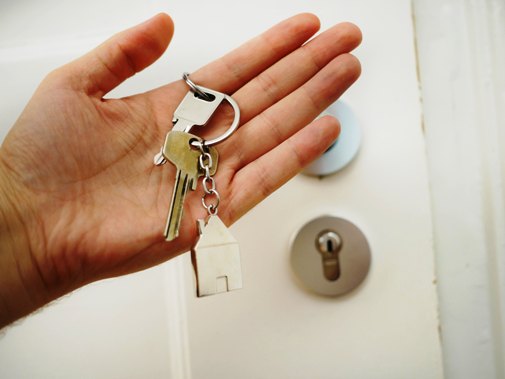Being a landlord has its benefits: your investment property will most probably appreciate in value over time, and you may be getting a positive cash flow from the monthly rent. But it may have its drawbacks as well: dealing with less-than-perfect tenants, arranging for repairs at inconvenient times, etc.
One set of problems that you definitely do not want as a landlord are legal ones, which are likely to bite you in the pocketbook. These are the most common issues I see when dealing with landlords who have chosen not to work with a real estate professional or even look into the laws regarding rental properties.
Not registering with the township
 Every landlord in New Jersey must be registered with their local township prior to renting out a property. The township will ensure that some of the important items in this post have been completed and the landlord is fully aware of his responsibilities. The purpose of involving the township in a private contract is to insure that the home is safe for tenants and both parties have a legal entity to turn to if a problem arises in the future.
Every landlord in New Jersey must be registered with their local township prior to renting out a property. The township will ensure that some of the important items in this post have been completed and the landlord is fully aware of his responsibilities. The purpose of involving the township in a private contract is to insure that the home is safe for tenants and both parties have a legal entity to turn to if a problem arises in the future.
There is a fee to register with the township as a landlord, but it’s not prohibitive. It’s certainly much less than the fine a landlord would receive for not having registered in the first place.
Another reason to register with the township is the fact that if a landlord ever needs to involve the housing division regarding a tenant problem, the township will not even accept the complaint until the landlord has registered and paid the fine for not having done so earlier.
Not having liability insurance
Investment property ownership comes with inherent risks, and one way to mitigate financial risk is to have adequate liability insurance. As of this writing New Jersey requires that a landlord have a minimum of $500,000 in liability insurance, which must be proven at the time of registration.
In addition to being illegal, not having liability insurance is not a wise way to manage an investment property that represents a significant amount of income and future value.
Not obtaining a township Certificate of Occupancy
This document has different names depending on the township, but in every case it certifies the same thing: the rental property has been inspected by the township and has been deemed safe for occupancy by tenants.
I cannot overstate the importance of this mandatory inspection, which many landlords skip out of ignorance or an ill-advised decision to save a few bucks. These are just some of the safety issues that are checked during such an inspection:
- Smoke detector operation and expiration date
- Carbon monoxide detector operation
- Condition of furnace and water heater
- Absence of water leaks in faucets and toilets
- Operation of windows for emergency exit
- Condition of carpets to avoid tripping hazards
- Condition of walls, ceilings and floors
- Condition of windows and window screens
- Operation of door and window locks
Not opening a separate account for security deposits
A security deposit given by tenants to a landlord is still the tenants’ money and must be kept in a separate bank account, not mixed with the landlord’s money. The laws regarding security deposits are strictly enforced to ensure that the funds are returned to tenants at the end of their lease term and any amount withheld meets specific requirements.
Not having an emergency contact for the tenants
Landlords have the option to make property repairs themselves, hire a property manager to take care of maintenance issues or maintain a contract with a home warrantee company that will address any repair issues on behalf of the landlord.
But it is imperative that the tenants know whom to contact in case of an emergency, no matter what day or what time of day they need help. In fact, the name and contact information of such person or company must be provided to the township and tenants at the time the lease is signed. For the benefit of the tenants and landlord and for legal compliance, there should never be an incident when tenants have no one to turn to in an emergency.
Not giving tenants a copy of the Truth in Renting booklet
Landlords in New Jersey are required to give tenants a copy of the Truth in Renting booklet, which you can review here.
Read this booklet thoroughly to understand your rights and obligations as a landlord and what rights tenants have. Most landlord-tenant questions are answered in the booklet, and more importantly, a number of legal guidelines are spelled out that will protect you as a landlord.
Don’t be penny-wise and pound-foolish
If you want to be a landlord, be a good one who will take care of the property and tenants while avoiding legal pitfalls. Visit your township’s municipal offices to find out what is required to meet their standards for registering and conducting business as a landlord.
Visit my page “All About Being a Landlord” for a detailed walk-through on how to navigate the entire renting process.



